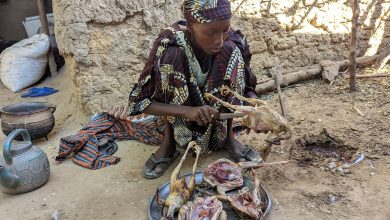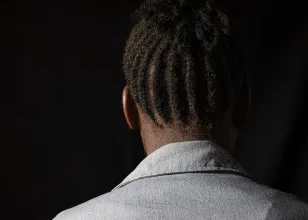95.5% Of Children With Disability In Nigeria Have No Access To Education – SCI
The charity is asking governments at all level to take action to ensure that children with disabilities have access to formal, sexual, and reproductive health education.

Majority of children living with disabilities in Nigeria are out of school and do not have knowledge of sexual and reproductive health issues including HIV/AIDs, Save the Children International has said.
In a statement released Tuesday, Feb. 15, ahead of the global disability summit 2022 that opened on Wednesday, the charity attributed this to inaccessible sexual and reproductive health and HIV communication and information tools this category of children which it noted are as much as 95.5 per cent.
Among other things, the summit intends to raise global attention and focus on neglected areas and inclusive sustainable development as well as strengthen the capacity of organisations of persons with disabilities and their engagement with governments
Quoting the UNFPA’s 2021 World Population Dashboard, Save the Children International said an estimated 32 million people in Nigeria including children live with one form of disability or the other, and face different types of discrimination which include having limited access to basic social services like health care and eductaion.
According to the World Bank Group’s assessment of disability inclusion in Nigeria, inaccessible public information and communication, high levels of illiteracy and poor quality sign language interpretation services are part of the challenges persons with disabilities face.
Another report by the World Bank revealed that persons with disabilities are more likely to experience adverse socioeconomic outcomes and face higher rates of multidimensional poverty.
Mercy Gichuhi, Country Director, Save the Children International Nigeria, said: “Children, girls and women with disabilities are the most affected and disadvantaged in times of disaster, armed conflict, or humanitarian crisis.”
“They are often neglected as part of communities during recovery and response programs. However, community development would be incomplete and the rights of children would be denied if it doesn’t include and address the rights and special needs of people with disabilities.
“Therefore, I would like to call upon development actors, donors, the private sector, states, and governments to deliberately take into account disability inclusion and rights in humanitarian and development planning, financing, and implementation.”
Save the Children International said the government should design programs in health, education and livelihoods that are more inclusive and conducive in a bid to curb the discrimination faced by children with disabilities, especially the girl child.
Aisha Mustapha (13), member, Borno State Children Parliament, representing children with disabilities, said: “on behalf of the Borno state children with disabilities I would like to ask everyone to do more towards empowering persons with disabilities.
“We need better education, job opportunities and special consideration in development program design and implementation. Visually impaired children like myself can learn if we have access to free, safe, inclusive, uninterrupted, and quality education facilities.
“Disability is not inability. We just need opportunities to grow, realize and release our potentials and contribute our fair share for the good of our country.”
Toyin Aderemi, Senior Advisor, Disability Inclusion, Save the Children West and Central Africa Region, said, “we at Save the Children recognise the rights of girls and boys with disabilities and their caregivers as we pledge 12 new commitments to the Global Disability Summit to ensure their full inclusion in our works; and we implore our governments and partners to also seize this opportunity to commit afresh to the inclusion of girls and boys with disabilities in all spheres of life in Nigeria.’’
“As key stakeholders meet at the Global Disabilities Summit to review the policy and financial commitments made during the last session and to chart a way forward for equality, meaningful engagement of people with disability, and building back better, these recommendations with critical action by Save the Children Nigeria can further improve collective efforts to ensure children with disabilities are not left behind as we strive to achieve the Sustainable Development Goals (SDGs). The full read of the recommendations are available here.”
Since the passing of the Disability Act in Nigeria, so far only 10 states (Kano, Jigawa, Anambra, Kogi, Ondo, Lagos, Ekiti, Plateau, Kwara, and Bauchi) have domesticated the Act.
Support Our Journalism
There are millions of ordinary people affected by conflict in Africa whose stories are missing in the mainstream media. HumAngle is determined to tell those challenging and under-reported stories, hoping that the people impacted by these conflicts will find the safety and security they deserve.
To ensure that we continue to provide public service coverage, we have a small favour to ask you. We want you to be part of our journalistic endeavour by contributing a token to us.
Your donation will further promote a robust, free, and independent media.
Donate HereStay Closer To The Stories That Matter




